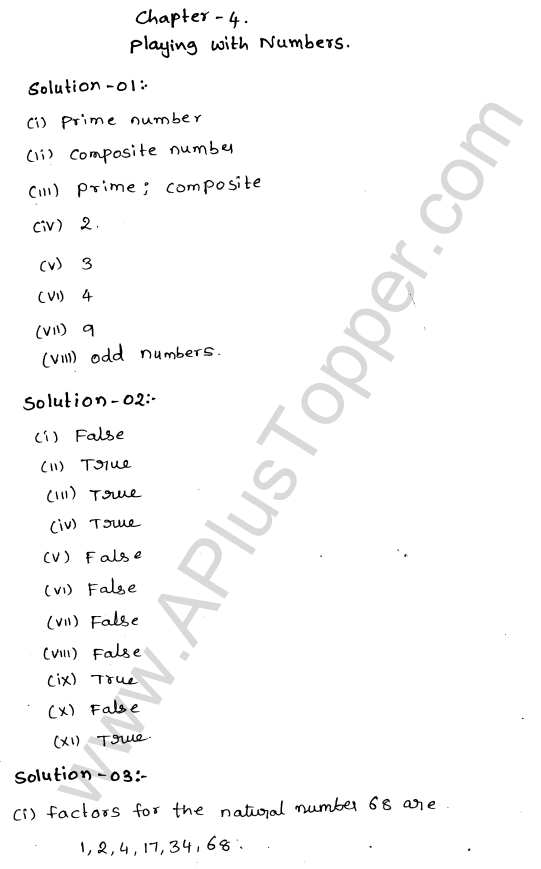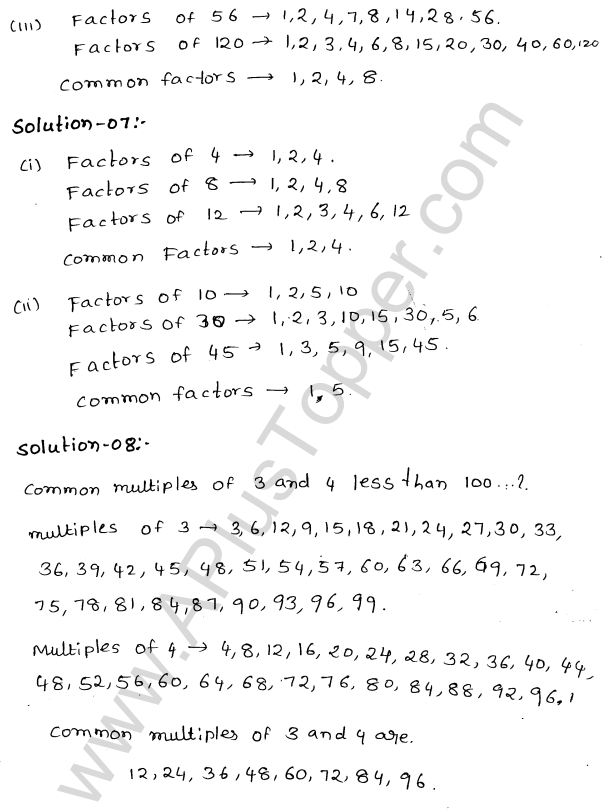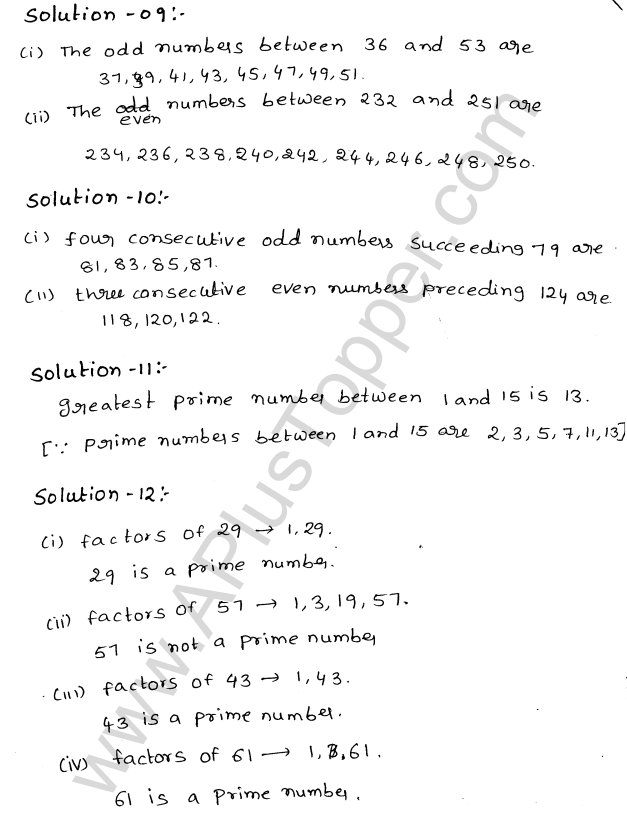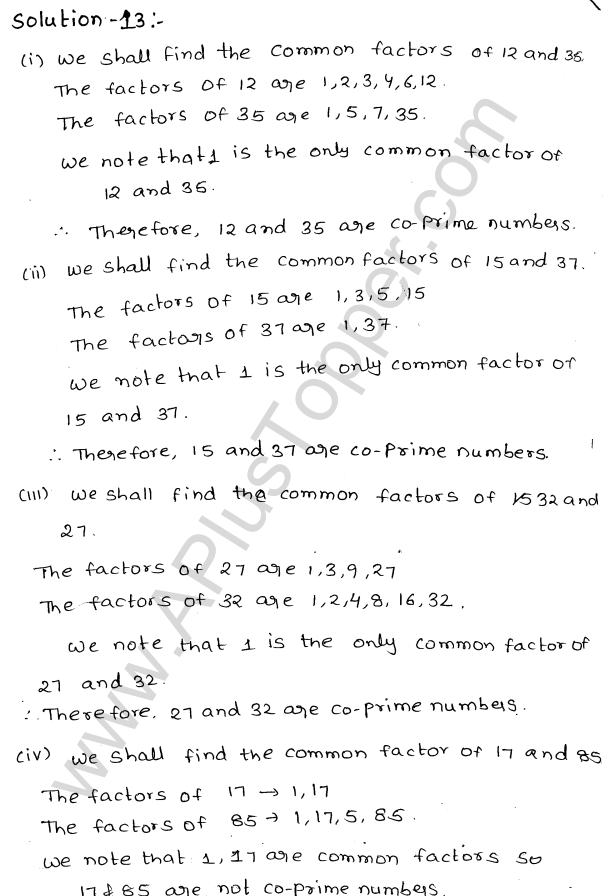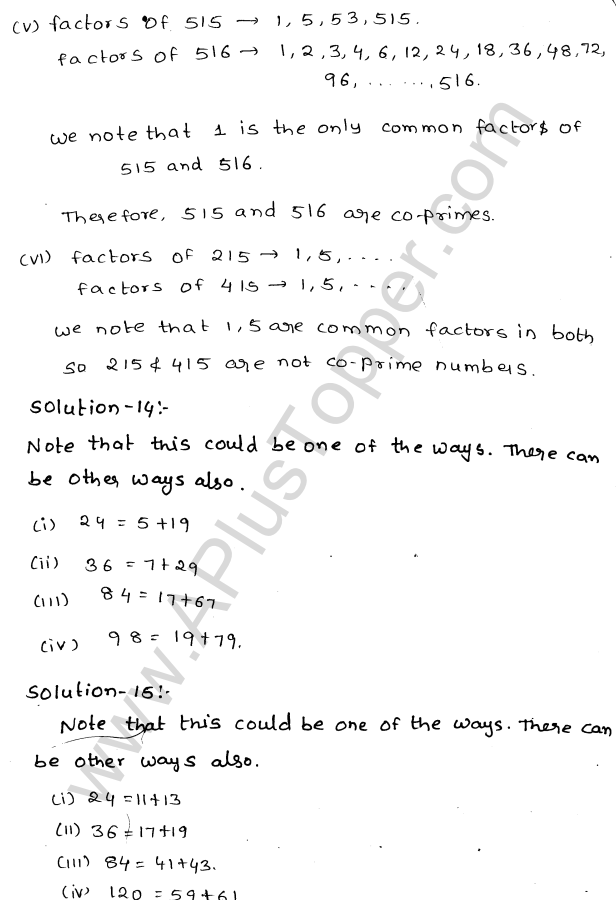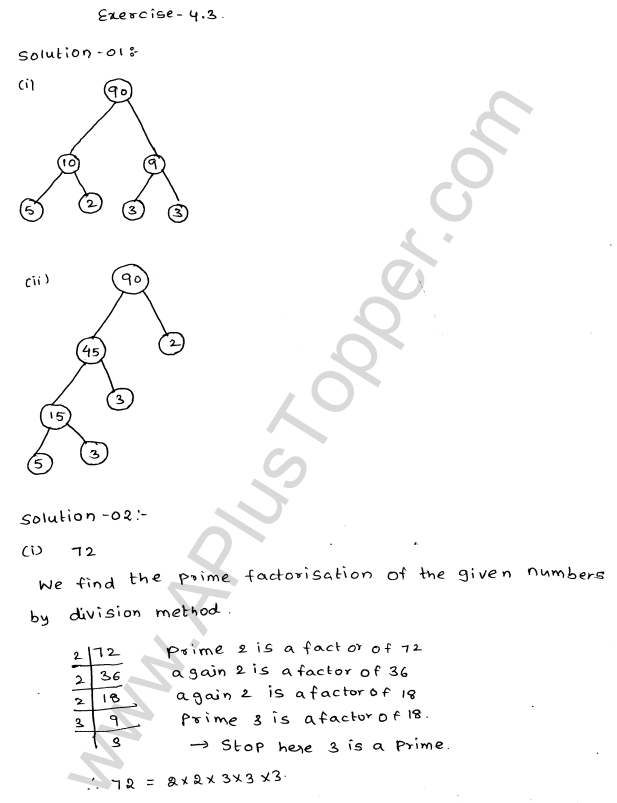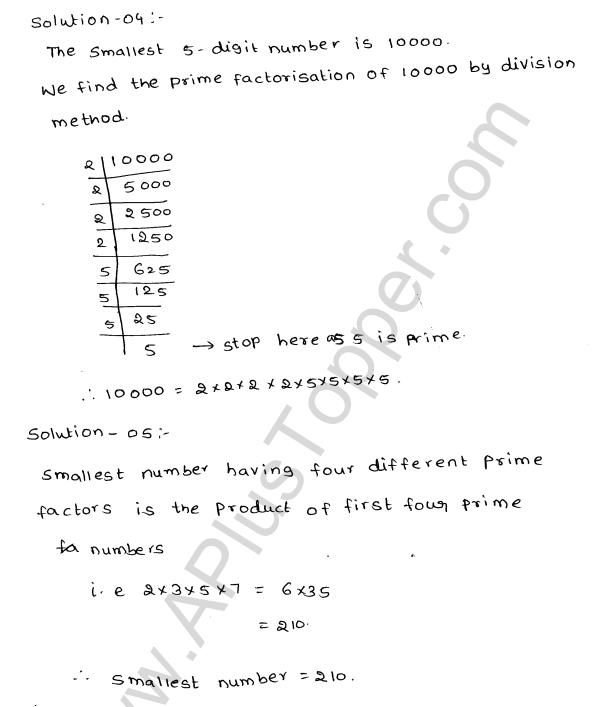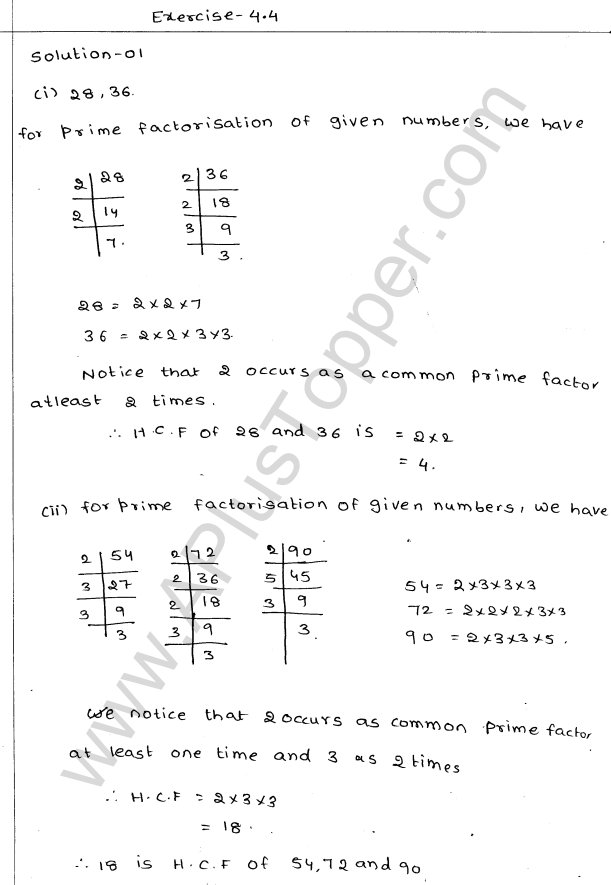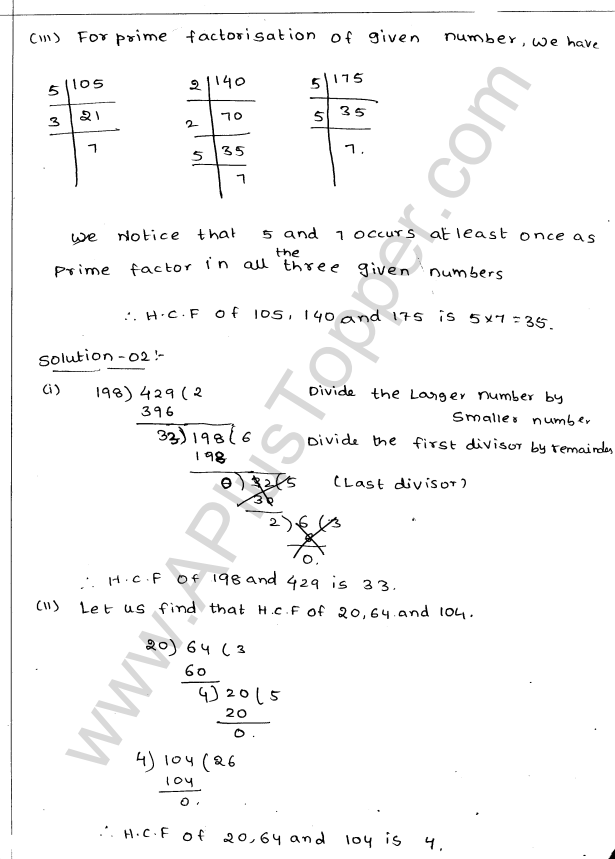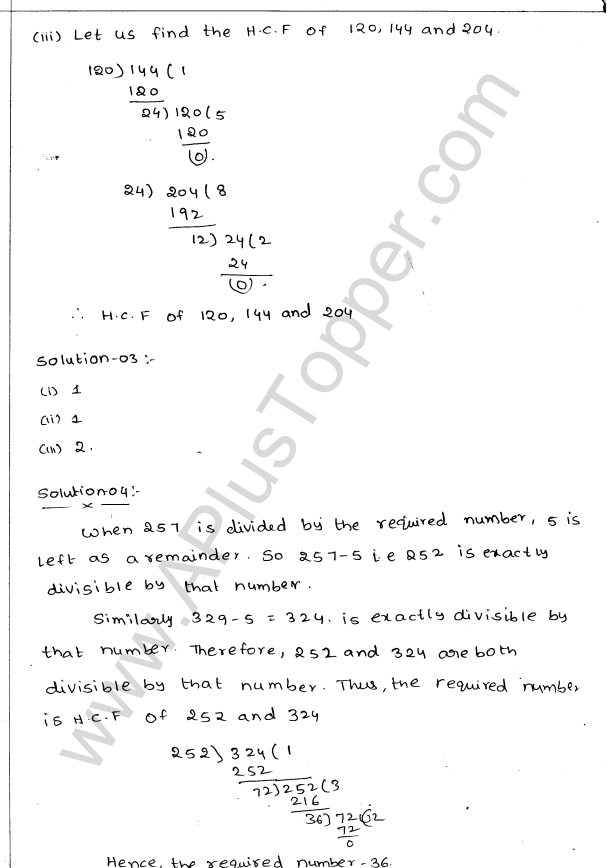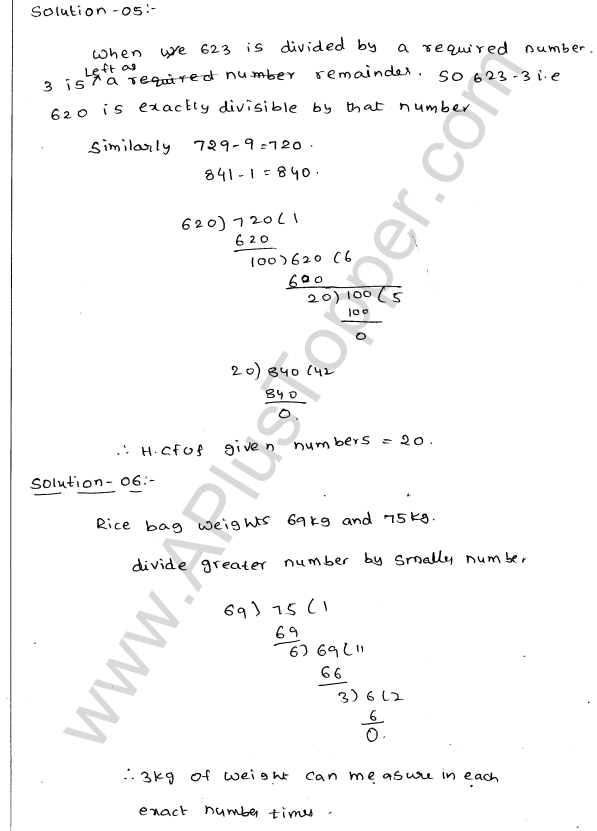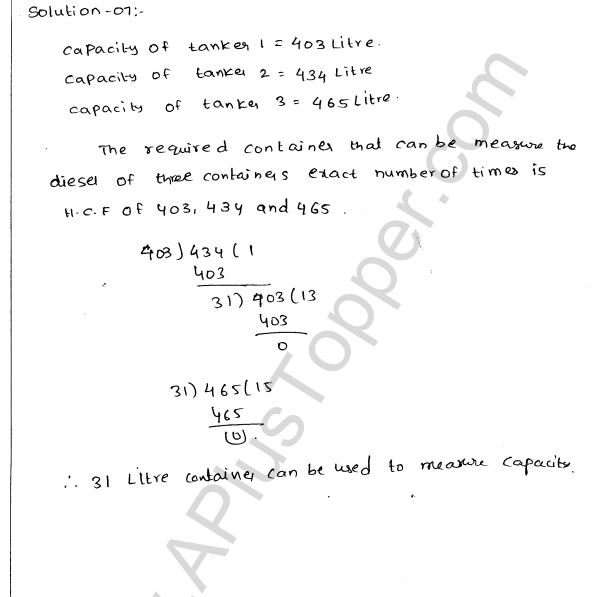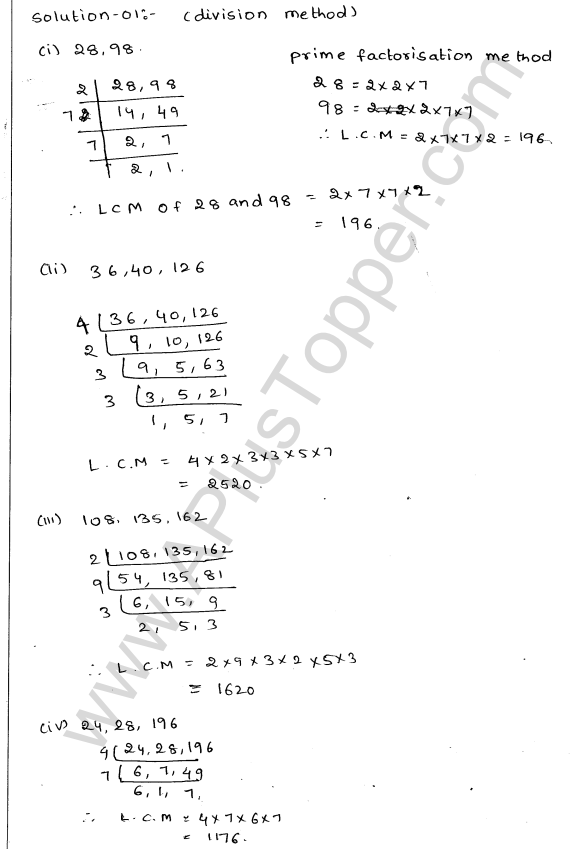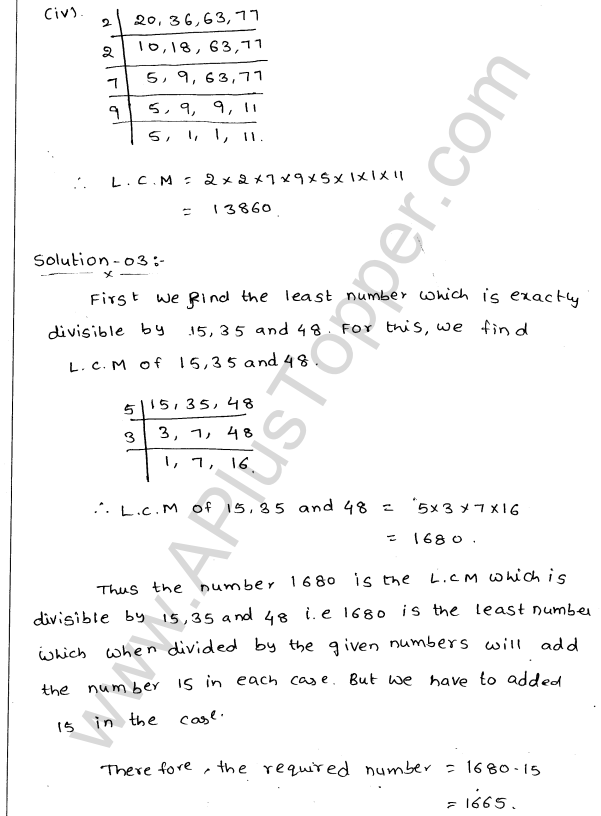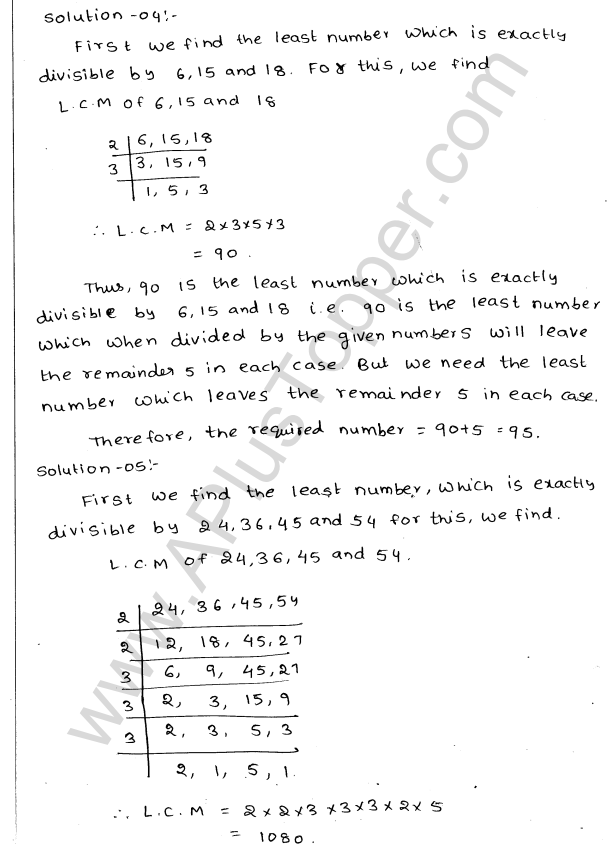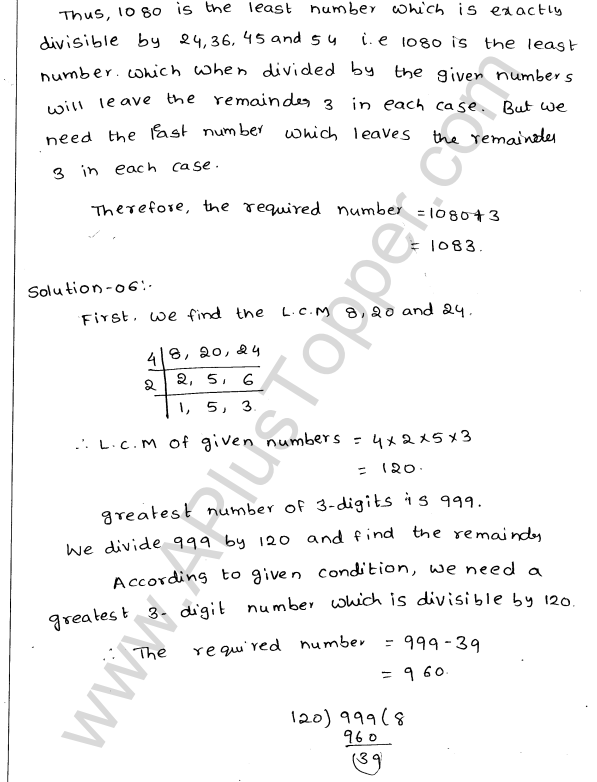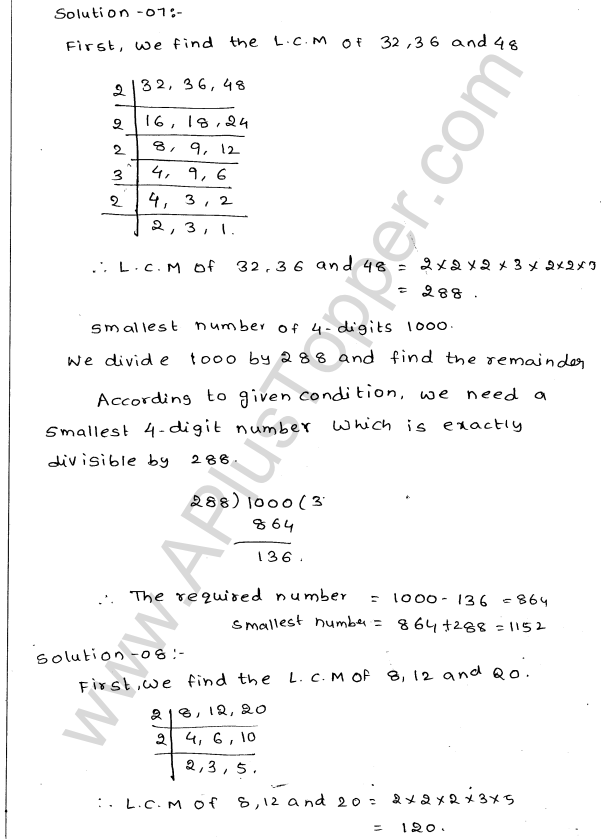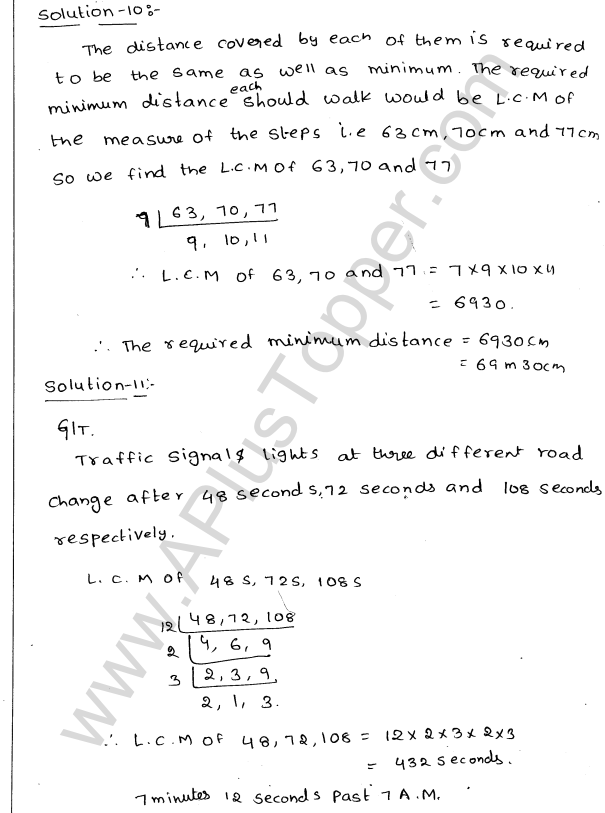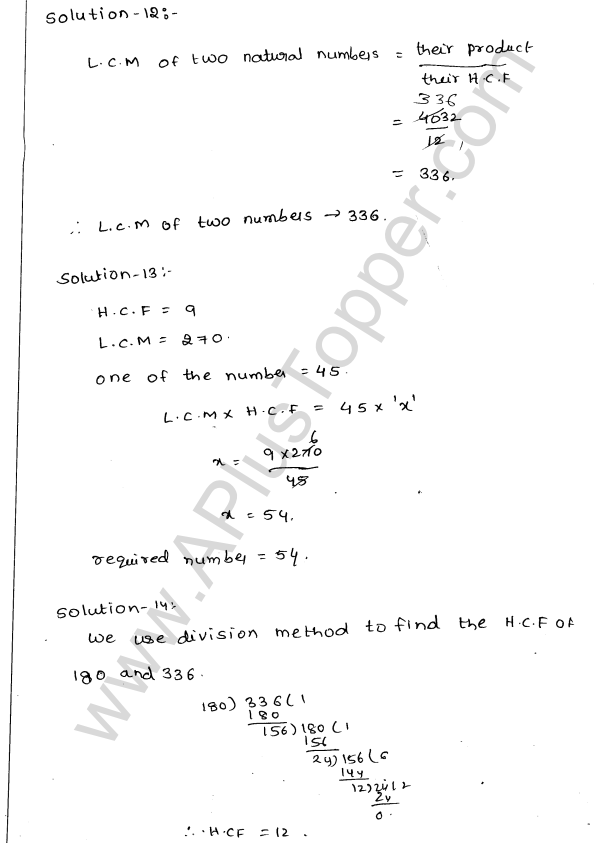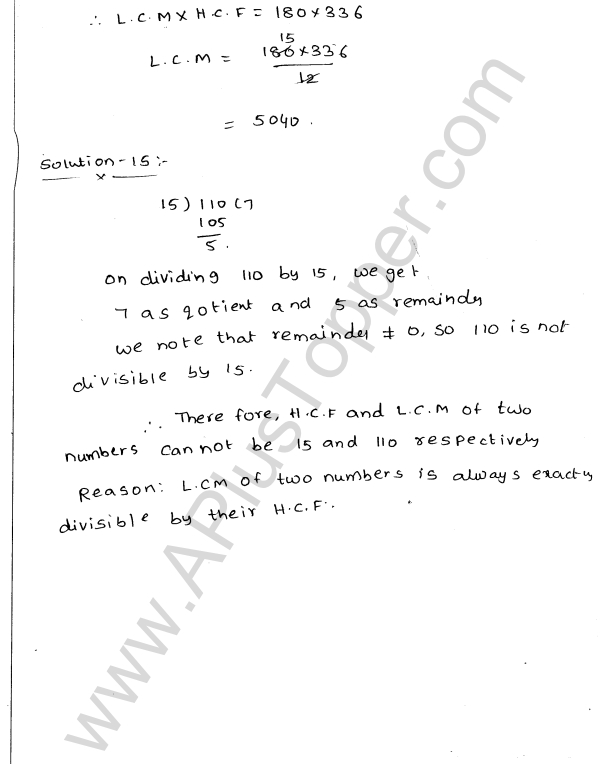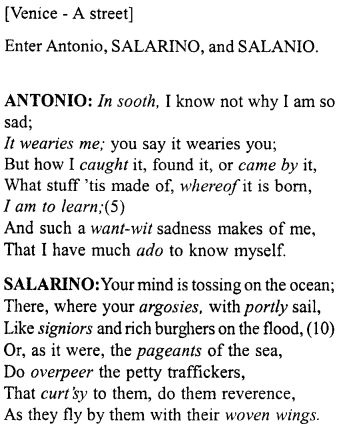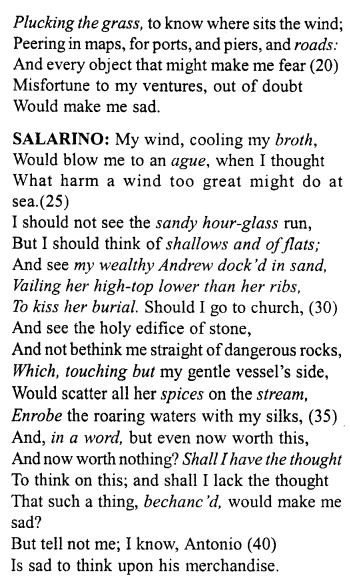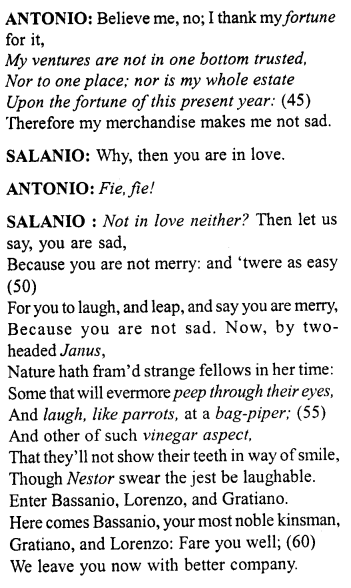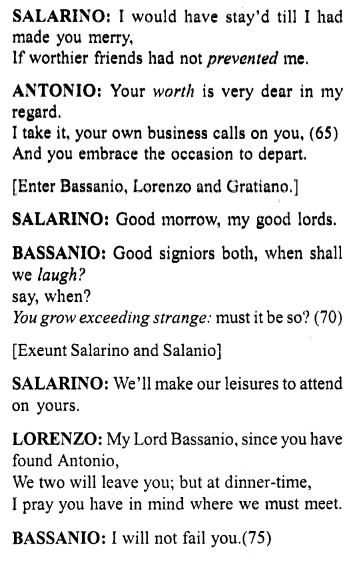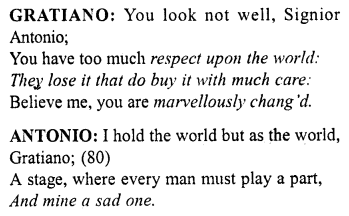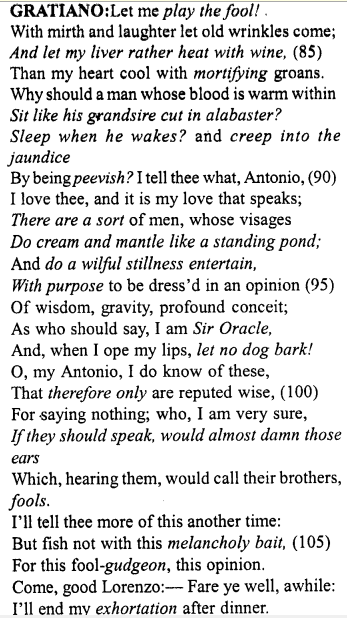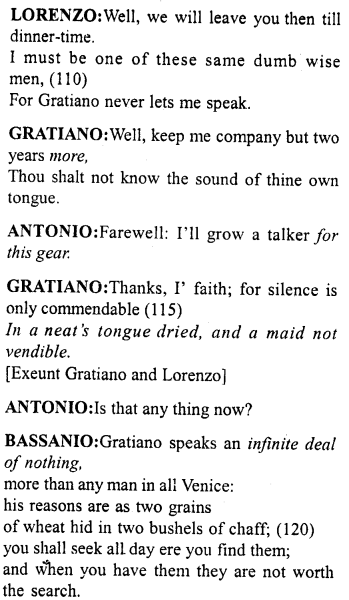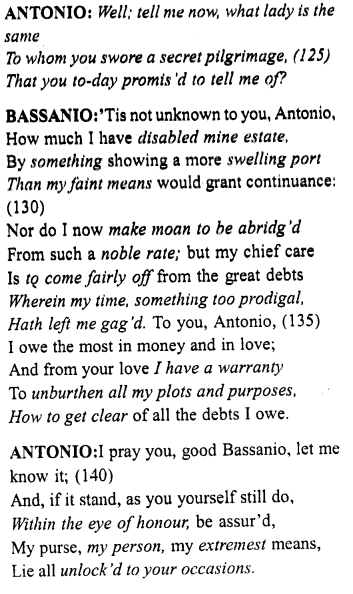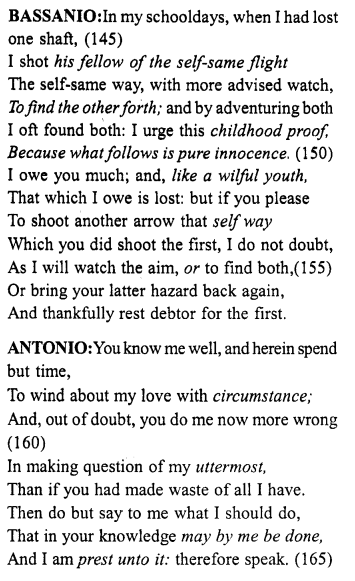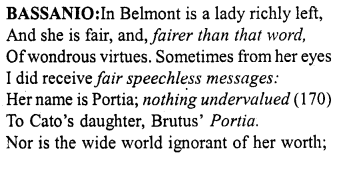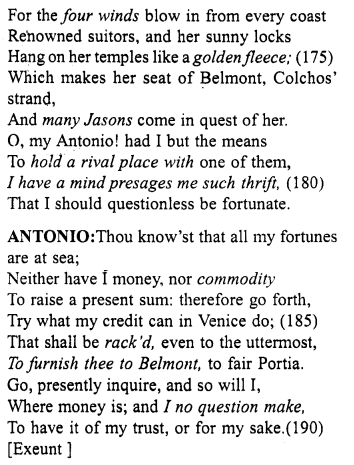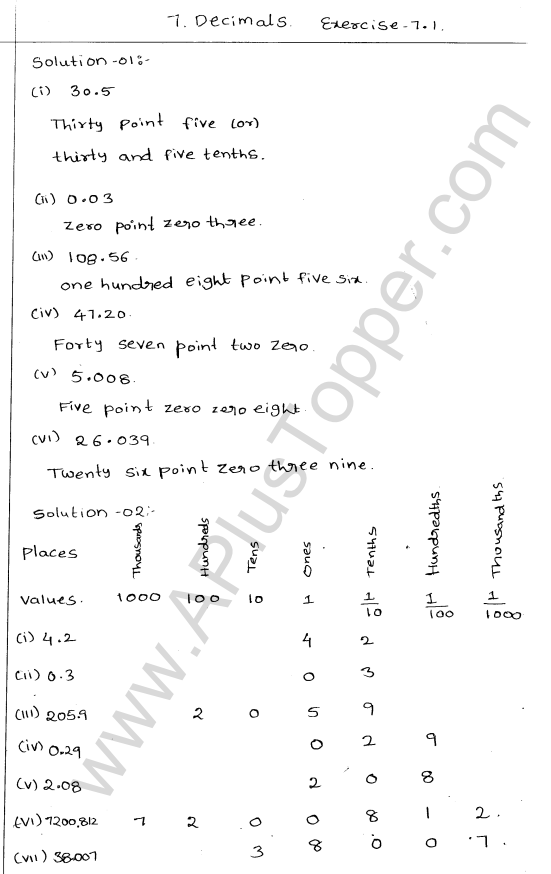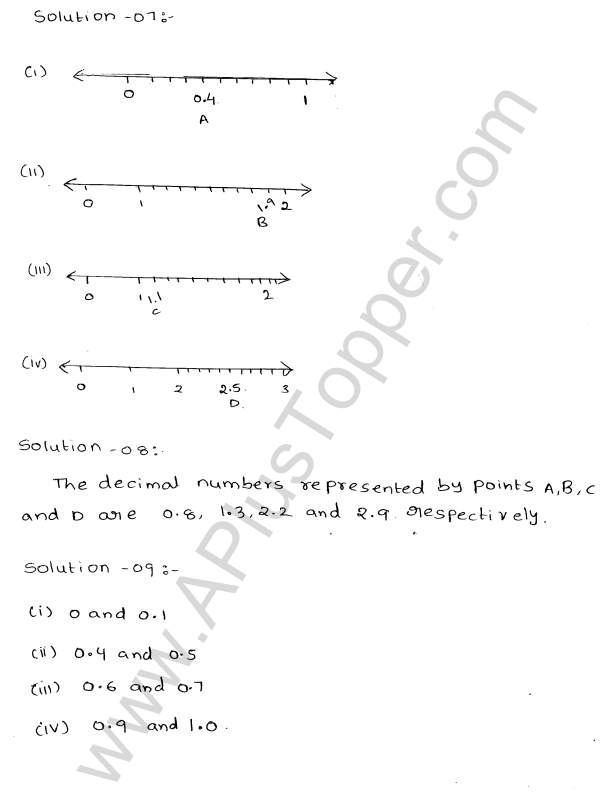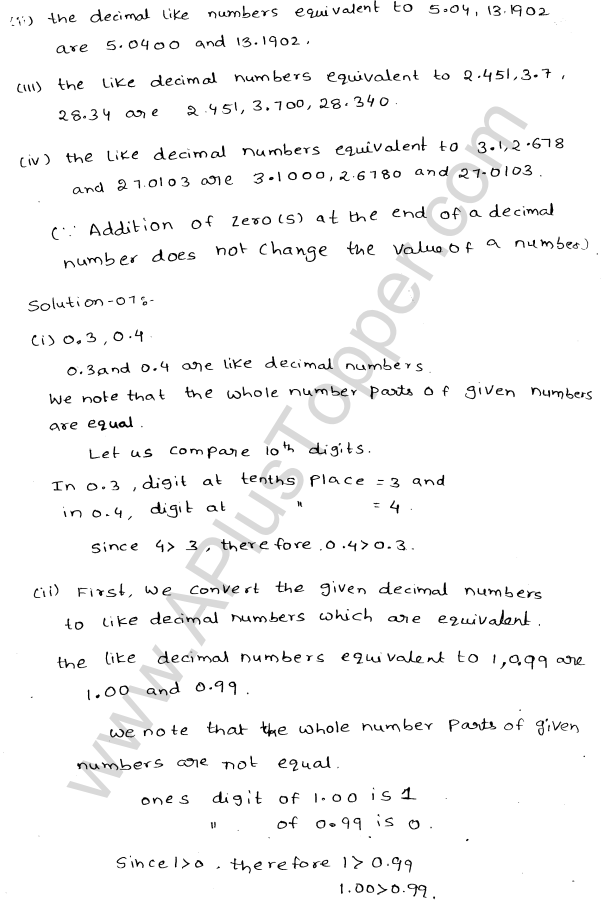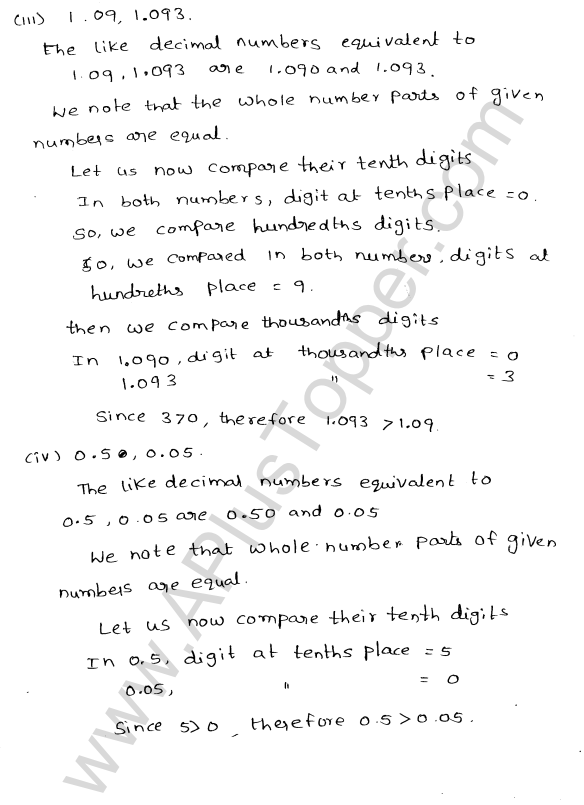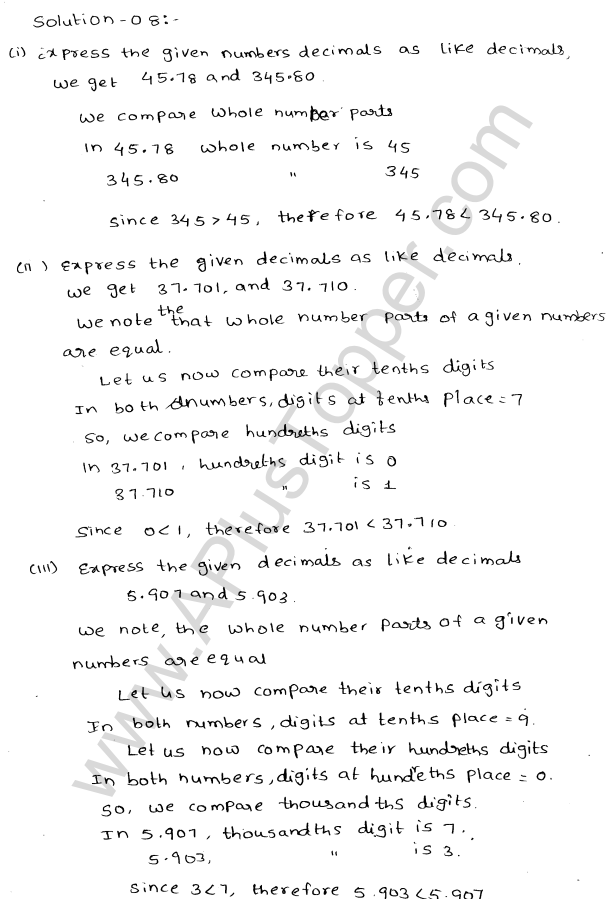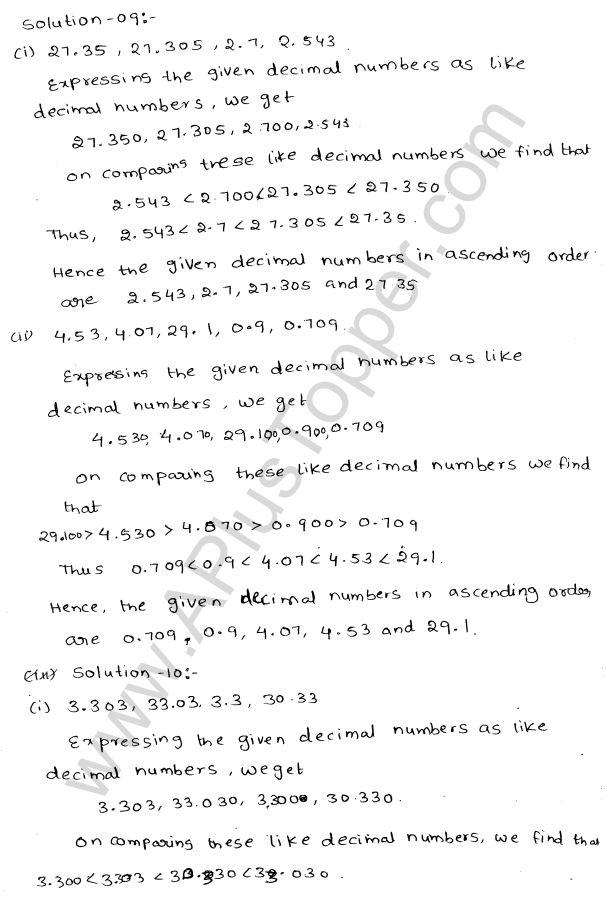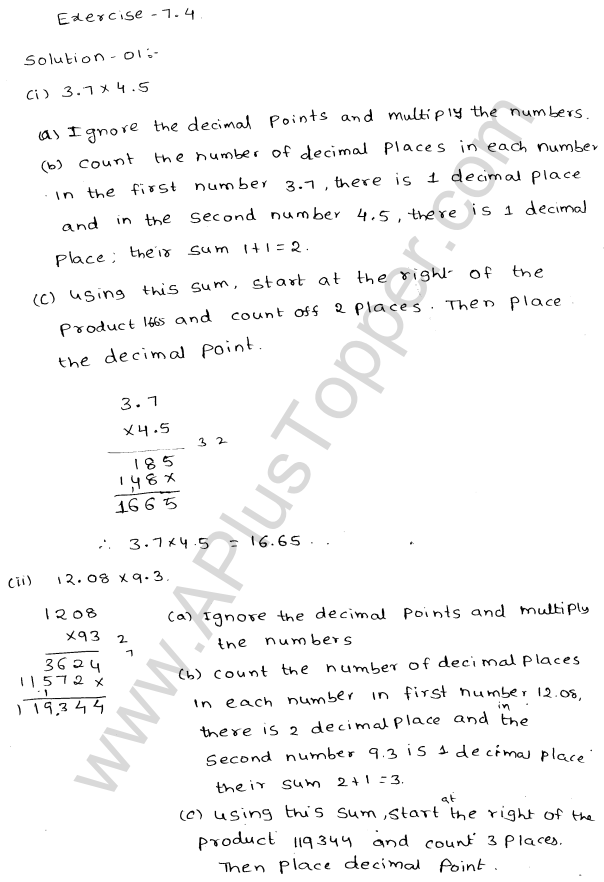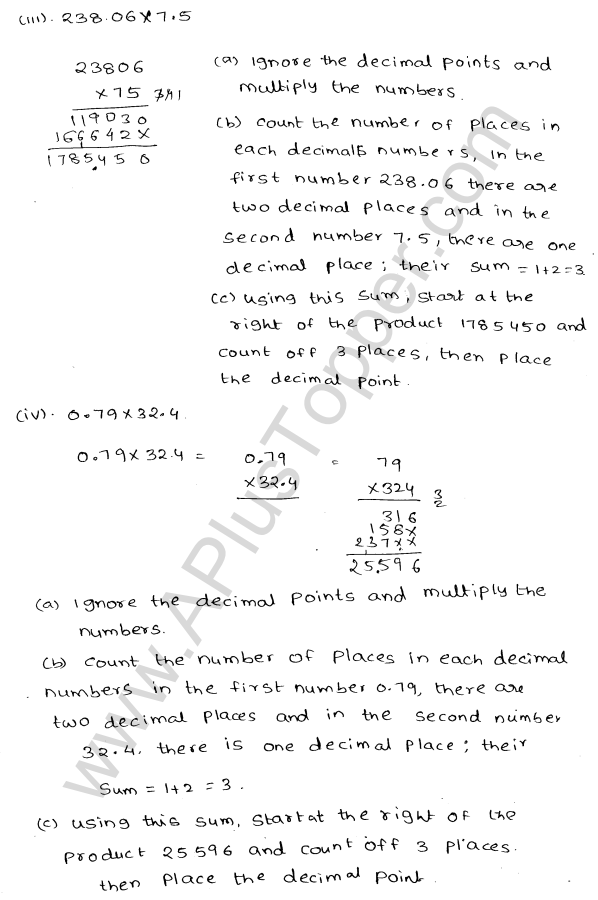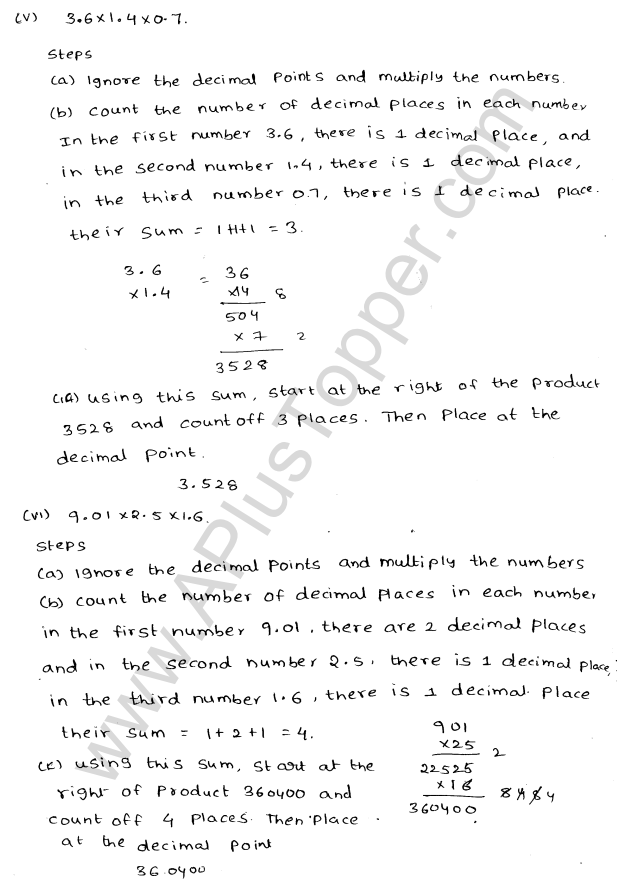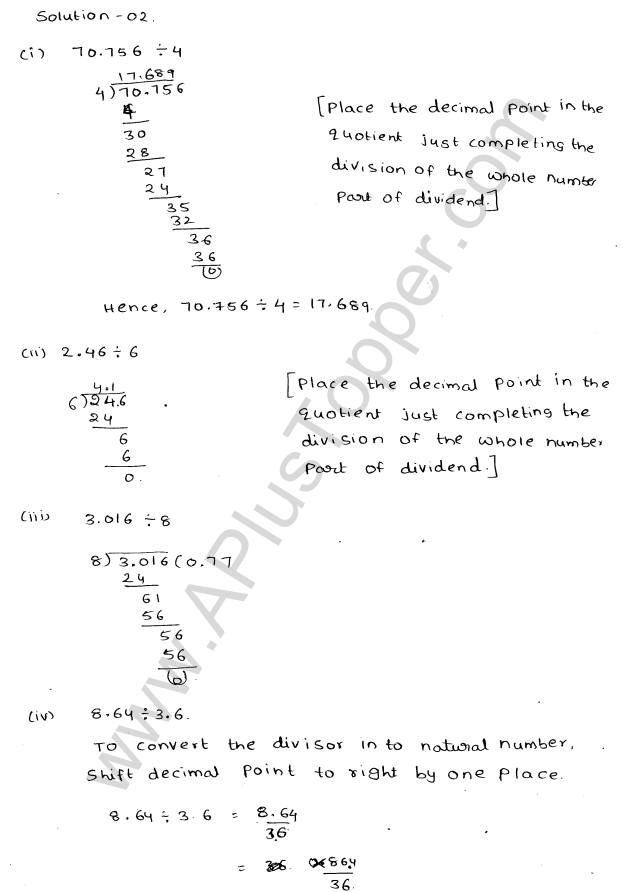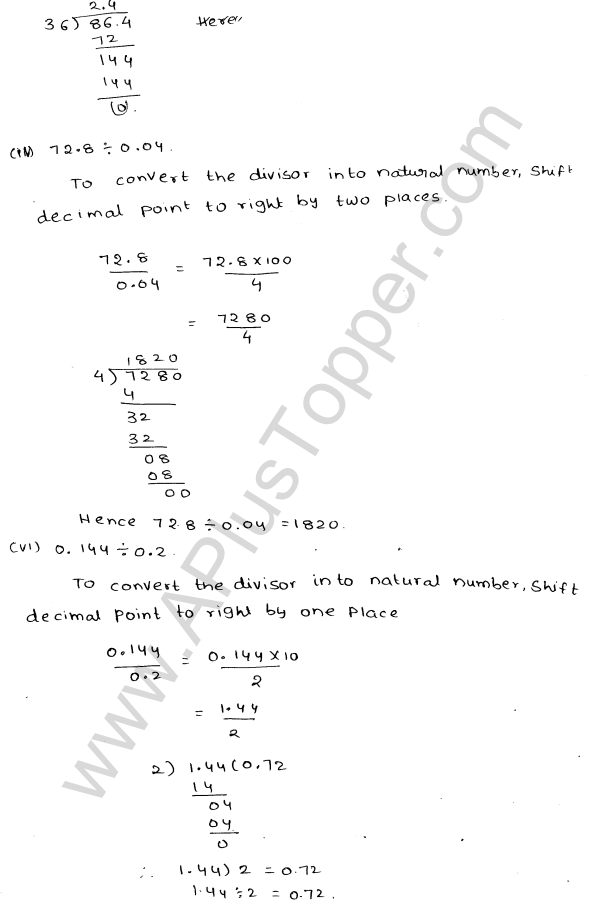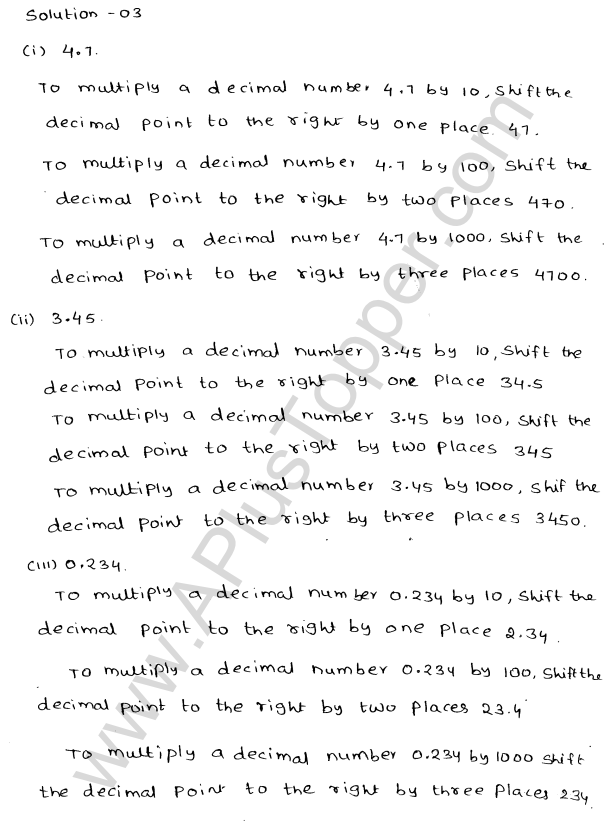Merchant of Venice Workbook Answers Act 5 – Important Notes – ICSE Class 10 & 9 English
EnglishMathsPhysicsChemistryBiology
ICSE SolutionsSelina ICSE SolutionsML Aggarwal Solutions
Word Meaning With Annotation
ACT V Scene I
Troilus, methinks, mounted the Trojan walls, and sigh’d his soul toward the Grecian tents, where Cressid lay that night : the characters mentioned here, Troilus and Cressida, were later immortalised by Shakespeare in the drama bearing their names. This refers to a tale of ancient Troy. Troilus was a son of Priam. Cressida, whom he loved, had been taken to the camp of the Greeks, who were besieging Troy. So Troilus is depicted as sadly walking on the walls of Troy, and looking towards the tents of the Greeks, where she is. Shakespeare’s object is to assemble in the minds of the audience several events of romantic beauty from old classical legend, and thus to create the impression that they are now looking on such a night of moonlit beauty as existed in all those images.
In such a night, did Thisbe fearfully o’ertrip the dew, and saw the lion’s shadow ere himself, and ran dismay’d away : Pyramus and Thisbe were lovers in ancient Babylon. They had made an appointment to meet each other at night, beside a certain tomb. Thisbe arrived first to keep the appointment, and saw a lion waiting there. She fled in terror, leaving her cloak onthe ground behind her. The lion took the cloak in his mouth, thereby leaving stains of blood on it. So when Pyramus arrived, he concluded that she had been devoured, and slew himself. Then Thisbe returned and discovered her lover’s dead body, and also committed suicide. Probably it was from Gower that Shakespeare derived this story, though Chaucer also has it. o’ertrip : to trip over, or to run across with light steps. The “dew” signifies “the dew-covered grass”, ere himself : before she saw Pyramus.
In such a night, stood Dido, with a willow in her hand, upon the wild sea-banks, and waft her love to come again to Carthage : the story of the love of Aeneas and Dido is told by Virgil in the Aeneid. Aeneas was the great Trojan warrior who founded the city of Rome. During his voyages, he landed in Carthage, where he gained the love of Queen Dido. Aftei several months of dalliance with her, he sailed away and left her broken-hearted. After a short period of extreme grief, she killed herself. Shakespeare says that it must have been on a beautiful full moon night like the present that Dido walked sadly by the shore of the wild sea, with a willow in the hand, the symbol of deserted love. Vainly she beckoned (wafted) to him to come back to Carthage.
In such a night medea gather’d the enchanted herbs that did renew old Aeson : we have heard of the classical hero, Jason, in this play. Medea was his wife and she is said to have experimented in enchantment. She gathered herbs of magical properties by night, and administered them to her aged father-in-law, Aeson, in an effort to restore his youth, steal : steal away. Lorenzo may be referring to the manner in which Jessica had appropriated her father’s property, unthrift : unthrifty; good-for-nothing. Jessica speaks playfully here, stealing her soul : capturing her love, like a little shrew : the shrew is a small field mouse, which is noted for its ferocity and fighting powers. Then the term came to be used to denote a scolding, or abusive woman, as is described in Shakespeare’s play, The Taming of the Shrew. Lorenzo’s words are spoken in affectionate jest, did pretty Jessica, like a little shrew slander her love : did repeat untruths against her lover. Lorenzo is referring to Jessica’s remarks in lines 19-20, where Jessica had playfully accused him of making false promises of love to her.
I would out-night you : Jessica says, “I would beat you in this game of making speeches about nights,” or perhaps “I would have the last word though it meant staying here all night.” footing : footsteps; tread, she doth stray about by holy crosses : Portia is spending some time in religious exercises in various sacred places. The cross is the symbol of the Christian religion, and usually marks a sacred place or shrine. One or two editors have adduced this as evidence of Portia’s religious character. But we know’ that Bassanio is in great haste to return of Belmont at top speed, and yet Portia contrives to arrive before him. So we may accept this information of Stephano’s as a polite fiction to satisfy the curiosity of the servants as to their mistress’s whereabouts, wedlock hours : married life, none, but a holy hermit, and her maid : Portia is bringing a holy man back with her. She has halted by some wayside shrine, and brought back with her the attendent priest. A hermit signifies a solitary holy man, and not one from a religious house where many are assembled, he is not, nor we have not heard from him : this is an example of Shakespeare’s use of the double negative nor not. The custom was that a negative repeated in this manner made the meaning more emphatic, ceremoniously : attentively; with due care.
Sola : is said to be an imitation of the sound of a posthom, that is, the horn which a post or messenger blew to let people know he was coming, hollaing : calling out. tell him there’s a post come from my master, with his horn full of good news : a post was a messenger, and he blew his horn to announce his arrival. But there is another well-known phrase “horn of plenty”, because of the good news he brings, expect : await, signify : make known the fact, let the sounds of music : let beautiful music steal gently upon us. soft stillness, and the night, become the touches of sweet harmony : peaceful quietness and night-time are very suitable for the notes of sweet music, there’s not the smallest orb which thou behold’st, but in his motion like an angel sings : the ancients had a peculiar conception of the stars and heavenly bodies. They believed that every star and planet produced in its motion a peculiar musical note, and the combination of all composed “the grand harmony of the universe”. The cherubs, or angels, are depicted as listening to this music of the stars, and responding to it. This same conception of the music from the heavenly bodies is referred to elsewhere by Shakespeare, quiring : singing like a choir, or organised body of singers, young eyed : possessing the bright eyes of youth.
Such harmony is in immortal souls; But, whilst this muddy vesture of decay Doth grossly close it in, we cannot hear it : Lorenzo states here that our souls are immortal, and also produce divine music. But as long as the dull human body (muddy vesture of decay) encloses the soul, we are unable to hear this, come, ho! and wake Diana with a hymn : Diana was the goddess of the moon. So to sing a hymn, or a solemn song, by night, might be said to awaken, her. pierce : penetrate. Race : a particular breed or strain. Here it seems to mean just the same as “herd”, unhandled colts : young horses which have not been “broken” or trained, hot condition of their blood : their own natural wild condition, mutual stand : come to a standstill all together, modest : quiet mild, the poet, did feign that Orpheus drew trees, stones and floods : Orpheus was a famed musician of classical tradition. It was said that his skill was so wonderful that trees, stones, and other inanimate objects could be moved from place to place by the power of his music, and streams could be made to change their courses. The particular poet referred to as imagining (feigning) this is probably Ovid, stockish : the phrase “stokes and stones” is usually employed to denote the inanimate things of nature. “Stock” is the same as “stick” or dead wood. The general sense of the world is “unfeeling or devoid of life”, full of rage : savage, with concord of sweet sounds : by the harmonious sounds of sweet music.
Is fit for treasons, stratagems, and spoils : “capable of treachery, scheming, and dishonesty.” Treason in Shakespeare’s time meant a political offence involving disloyalty to the State, stratagems : usually means a diplomatic or crafty action; the word is here used with a sense of baseness, which it need not necessarily possess, the motions of his spirit are dull as night : his thoughts and feelings are black as night, and his affections dark as Erebus : “and his likes and dislikes as dark as Hell.” Erebus was an abode of utter darkness, supposed by the classical peoples to exist in the under-world, and corresponding to our conception of Hell, naughty : worthless; wicked. So doth the greater glory dim the less, a substitute shines brightly as a king, Unto the king be by; and then his state, Empties itself, as doth an inland brook, Into the main of waters. Music! hark! : this, like numerous other passages in the final scene, show the unusual extent to which Shakespeare allows his characters to indulge in general moralising on life. He is carefully constructing the final atmosphere in which the play is to conclude. There is almost an attempt to convey a moral lesson, or point out a meaning to be derived from the incidents of the first four Acts, an intention practically unknown elsewhere in Shakespeare. The lines show Portia’s reflective nature, and give a final conception of her intellectual powers, a substitute : a person who has been acting temporarily in the place of another, his state : the glory and the splendour of the temporary king, inland brook : a stream flowing from the interior of the country.
Nothing is good, I see, without respect : nothing is good only because of its own value; it is affected, influenced by and dependent on circumstances and environment, methinks : I think; it seems to me. The crow doth sing as sweetly as the lark, when neither is attended : this is a statement which will be disputed by any observer of English bird life. The crow in England has a harsh unmusical note, not differing greatly from the Indian crow. The lark has a singularly sweet song. The crow lives in flocks, and a flock of crows all “cawing” at once is not musical by any means whereas the lark certainly commands our undivided attention by always singing alone, and at a great height in the air. Shakespeare, however, says that the chief charm of the lark’s song is that it is always heard alone, while crows are not appreciated because they are always heard in flocks.
The nightingale, if she should sing by day, when every goose is cackling, would be thought, no better a musician than the wren : this is a repetition of the same thought, but again is an over-statement. The nightingale certainly attracts more attention, since the song of the bird is usually heard all alone in the dusk of evening, when other birds have retired for the night. But the song of the nightingale is singularly musical under any circumstances, while the notes of the wren possess no great charm in themselves. Moreover the nightingale does often sing by day, though Shakespeare does not seem to know this, every goose : every common bird, cackling : uttering harsh notes, by season season’d are : are improved in every way by being perfonned at a suitable time or place. Such artificial arrangement of words as this we term “epigrammatic.”
the moon sleeps with Endymion, And would not be awak’d : this is another reference to an old- classical legend. Endymion was a beautiful youth who was loved by the moon. When he slept at night, the moon kissed him by pouring down her silvery light. So the phrase “the moon sleeps with Endymion” became a poetical expression meaning “it is night and the moon is shining”. But Portia takes “sleeps” in its literal sense, and says, “Silence there! the moon and her beloved Endymion are asleep and she does not wish to be disturbed by your music.”
He knows me as the blind man knows the cuckoo, By the bad voice : Portia’s humour. The cuckoo in England has an unmistakable note; even a blind man could not confuse it with any other bird, which speed, we hope, the better for our words : “Whom, we hope, will be benefited by our prayer.” The word speed is from the Old English verb spedan, which meant “to prosper” or “to benefit by”. The meaning has now come to denote fastness or quickness, but the old meaning will be found in such a phrase as “God speed you !” or, “May God make you prosperous!”, that they take no note at all : that they appear to know nothing at all of. tucket : a series of notes on a trumpet, tell-tales : informers; people who tell tales of each other, this night, methinks, is but the daylight sick : it is such a clear night that Portia says it is rather like a dim or sickly kind of daylight than the darkness we expect at night time.
We should hold day with the Antipodes, If you would walk in absence of the sun : this is an example of the fantastic and extravagant compliments of gallantry which were popular among the Elizabethans. The Antipodes denote the point on the earth’s surface which is exactly opposite to where we happen to be for the time being. Thus England has Australia for its Antipodes, since the two countries are at opposite points of the earth. When the sun is shining in Australia, it must be dark in England. But Bassanio says that Portia herself diffuses such brightness as to replace the sun, so that it is possible for them to enjoy daylight at the same time as the Antipodes. It is his elaborate and courtly way of explaining the brightness of the night, on which Portia herself has just been commenting, let me give light, but let me not be light : again the favourite play upon words Portia puns on the double meaning of light, (i) bright, (ii) immoral. A woman of doubtful virtue is very often called “a light woman.”
for a light wife doth make a heavy husband : for an unchaste wife makes a sad husband, you should in all sense be much bound to him. for, as I hear, he was much bound for you : “you have every reason to be under great obligations of friendship to him, for I hear that he accepted great responsibilities on your behalf.” acquitted of : now free from, therefore, I scant this breathing courtesy : so I shall cease expressing it in mere polite words. Hoop : circle; ring, posy : this word was used by the Elizabethans to denote the proverb or inscription which was often written on the inside of a ring, like cutler’s poetry : it was also customary to have inscriptions on the blades of knives. They would perhaps not be so poetical in tone, for Gratiano says with contempt that the motto in the ring which Nerissa had given him was more like the inscription one would expect to find on a knife. But we can hardly see that this is just, when applied to “Love me and leave me not.” It seems quite appropriate and suitable for a lover’s gift, and Gratiano’s sneer is poor, you should have been respective : you should have had respect for it.
the clerk will ne’er wear hair on’s face that had it : the clerk you claim to have given in to will never wear a beard (i.e. because it was to a woman that you gave it), by this hand : another Elizabethan oath, scrubbed : scrubby; small-sized, prating : over-talkative, begg’d it as a fee : asked for it as his payment. To part so slightly with your wife’s first gift : to let such a slight cause make you part with your wife’s first present to you. a thing stuck on with oaths upon your finger : the ring had been placed on his finger to the accompaniment of solemn promises, which should have made it remain there, and so riveted with faith unto your flesh : a rivet is a type of steel nail, used to fasten metal plates together. Portia tells Gratiano that his solemn faith and honour should have been as strong as steel rivets in preventing the ring from leaving his finger.
I dare be sworn for him he would not leave it : Portia is deliberately making the situation uncomfortable for Bassanio, and increasing the irony for the enjoyment of the audience. She says that she is so sure of Bassanio that she would take an oath that he has not parted with her ring, “leave it” is equivalent to “part with it” or “lose it”, masters : possesses; owns, you give your wife too unkind a cause of grief : you have inflicted too cruel an injury on your wife. An ‘twere to me, I should be mad at it : if this had been done to me, I should be angered by it. I were best to : my best course would be to, etc. Man nor master : “man” in this sense is often used to denote “servant”, i.e. the clerk, while “master” is of course, Portia in her capacity as judge. If I could add a lie unto a fault, I would deny it : if my conscience would allow me to conceal my offence by a lie, I would deny having done so.
even so void is your false heart of truth : similarly your false heart lacks truth, void, empty of. Sweet Portia, if you did know to whom I gave the ring : this device of ending a number of lines with the same word is found seldom in Shakespeare, though cases do occur. If you did know for whom I gave the ring : Bassanio means that it was for the sake of his friend, Antonio, that he gave the ring away, left : “parted with”, abate : lessen. If you had known the virtue of the ring : “virtue” is often used in this manner to denote “goodness”. But it is more probable that Portia hints that the ring had a mystic or luck-bringing property, which would be lost by parting with it. or your own honour to contain the ring : If you had realised what a sacred obligation it was on your part to preserve the ring, what man is there so much unreasonable : the use of “much” In this adverbial sense is strange to our ideas of the word; read “so very unreasonable”. If you had pleas’d to have defended it : if you had cared to make an effort to retain possession of it.
with any terms of zeal, wanted the modesty, to urge the thing held as a ceremony : the sense is simple: “if you had defended it true zeal, what man would have been so lacking in good manners (modesty) as to press you for the ring, which you wore as a sacred thing?” I’ll die for’t, but some woman had the ring : I will wager my very life that you gave the ring to some woman. Civil doctor : a lawyer; a doctor of civil law. had up : saved; preserved. I was enforc’d to send it after him : I felt myself compelled (morally) to send the ring after him. I was beset with shame and courtesy : I was filled with shame at having refused him, and also prompted by natural courtesy to give it to him. besmear : stain; disgrace, blessed candles of the night : the stars, which are still visible. Shakespeare wishes the audience to think of this as taking place in the dim light of dawn, with stars still visible. He continues the impression of scenery by numerous little allusions of this nature.
I am the unhappy subject of these quarrels : I am unfortunate enough to be the cause of this quarrel, enforced wrong : this wrong which I was forced to inflict on you. thine own fair eyes, wherein I see myself : Bassanio may mean that he actually sees his own physical reflection in Portia’s bright eyes. But it may also be read: “Wherein I see the reflection of a soul, similar to my own.” There is no one clear meaning, for Shakespeare purposely constructs such lines with an ambiguous form in order to enable the other party to the conversation to quibble on the double meaning. So here Portia at once takes his words up in the former sense. She says, “If you see yourself reflected in my eyes you must see two images, one in each eye. If there are two images of you, that shows you to be a double (deceitful) person. So when you swear by your own deceitful self, that is not an oath which one can believe.”
I once did lend my body for his wealth : I once pledged my body on purpose for his welfare, had quite miscarried : would have been completely lost, which refers to body. I dare be bound again : yet I would risk entering myself as security for him once more, pledging my soul rather than my body, advisedly : intentionally; deliberately, surety : sponsor; security. Sweet lady, you have given me life, and living : “You saved my life at the trial, and now you restore my means of livelihood,” This is the same thought as expressed by Shylock in the trial scene, road : a road, in the sea-faring sense, is a sheltered bay or harbour where ships can lie in safety.
A special deed of gift : that which Shylock had been compelled to draw up in the court. We know that Portia possessed this, but we are left quite without information as to where she procured the letter telling Antonio of the safe arrival of his ships, manna : in the Old Testament of the Bible, the Jews are described as wandering in the desert on a long journey, without any means of support. So God sent divine food from heaven to them, called “manna”, and this they found lying on the ground. And charge us there upon inter’gatories : “and put as many questions to us as you like.” This phrase has been quoted in support of the argument that Shakespeare may have served in a law office at some time or other, so accurate and full is his knowledge of legal terms.
For More Resources
